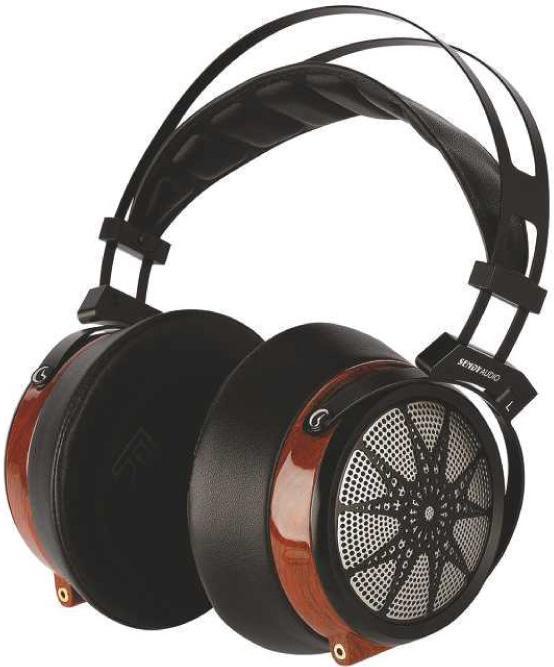Sendy Audio Apollo Review
At first glance, Sendy’s Apollo looks very similar to its Peacock (HFC 486), with its large wooden earpieces and an open-back design adorned with an eye-catching perforated metal grille. The Peacock provided impressive sound, but was matched by a hefty £ pricetag.

In contrast, the Apollo proves a far more affordable option although it’s not too difficult to reduce the price once you cut back on details such as the 24K gold trim found on the Peacock. While the Apollo uses a similar planar-magnetic design, its drivers are slightly smaller, measuring 68mm. These are the only compromises Sendy has made here, though, and the Apollo provides the same sturdy build quality and the same promising 20Hz-40kHz frequency response. The radiating ‘starburst’ design on the back of the earpieces is quite striking.
I actually prefer the design of the Apollo, not least because its weight of 395g is considerably lighter than the Peacock. The comfortable earpieces are padded with memory foam and are so large they barely touch my ears at all, which helps ease the pressure on the sides of my head and allows the adjustable metal headband to carry most of the weight. My only concern is that the bulky earpieces might be too big for some, so it might be worth trying the Apollo on in a showroom before splashing the cash.
Apart from the sturdy leather carrying case all that’s included is a 2m double-ended braided copper cable. This provides twin 2.5mm connectors for the earpieces, with a 4.4mm connector for your audio devices, and there’s also a 4.4mm-to-3.5mm adapter included.
Sound quality
The Apollo is less than half the price of its gold-trimmed stablemate, but it can give the Peacock a run for its money. Max Richter’s On The Nature Of Daylight is sedately paced, but the Apollo takes the opportunity to allow the slow melody of the deeper strings to breathe and express itself. It does a fine job of capturing their rich texture and then contrasting it with the sharper, more urgent tone of the violins. It also creates a nice sense of space, giving the intertwined melodies plenty of room to weave around each other before coming together for the final crescendo.
My only – admittedly minor – reservation is the Apollo doesn’t have quite the same purity of sound as the more expensive Peacock, perhaps sounding a shade warmer on the lush orchestral arrangement.
After all that orchestral tastefulness, I turn to the more chaotic charms of My Chemical Romance and Vampire Money. The Apollo takes the change of mood in its stride, delivering the drum intro with a resoundingly firm slap and catching the nervous energy of the band as Ray Toro and Mikey Way warm up by torturing the strings on guitar and bass before launching into some high-speed riffing. The guitar break halfway through is a riot, but the Apollo holds it all together, leaning on the firm, steady bass and drums to underpin Toro’s frantic fret work, while the shimmering cymbal sounds like someone throwing an endless succession of bricks through sheets of glass.
I’m even impressed to find that the Apollo can play a mean bass, too. The slinky riff that drives Leonard Cohen’s You Want It Darker glides along with a taut, tense rhythm, but that’s balanced by the metronome precision of the sharp, tapping snare. Even deeper and more expressive is Cohen’s own bass rumble as – on the last album released before his death – he intones: “I’m ready, my lord…”
Conclusion
I can’t help feeling that the Apollo adds a little warmth to the sound, but it always seems to match the emotion of the piece, and at this price it’s a good option if you want open-back headphones that don’t cost the earth
DETAILS
PRODUCT
Sendy Audio Apollo
ORIGIN
China
TYPE
Over-ear, openback headphones
WEIGHT
395g
FEATURES
• 68mm planarmagnetic drivers
• Frequency response: 20Hz-40kHz
• 2m cable with 4.4mm balanced connector
WEBSITE
sendyaudio.com





